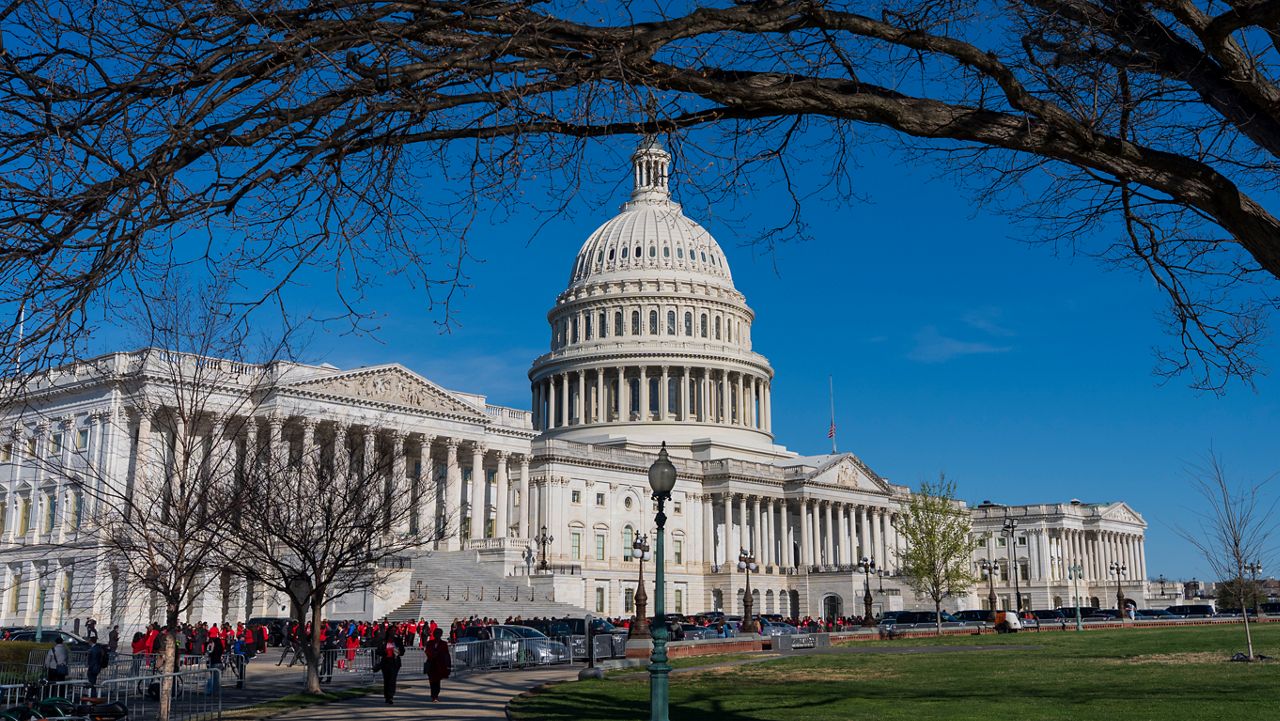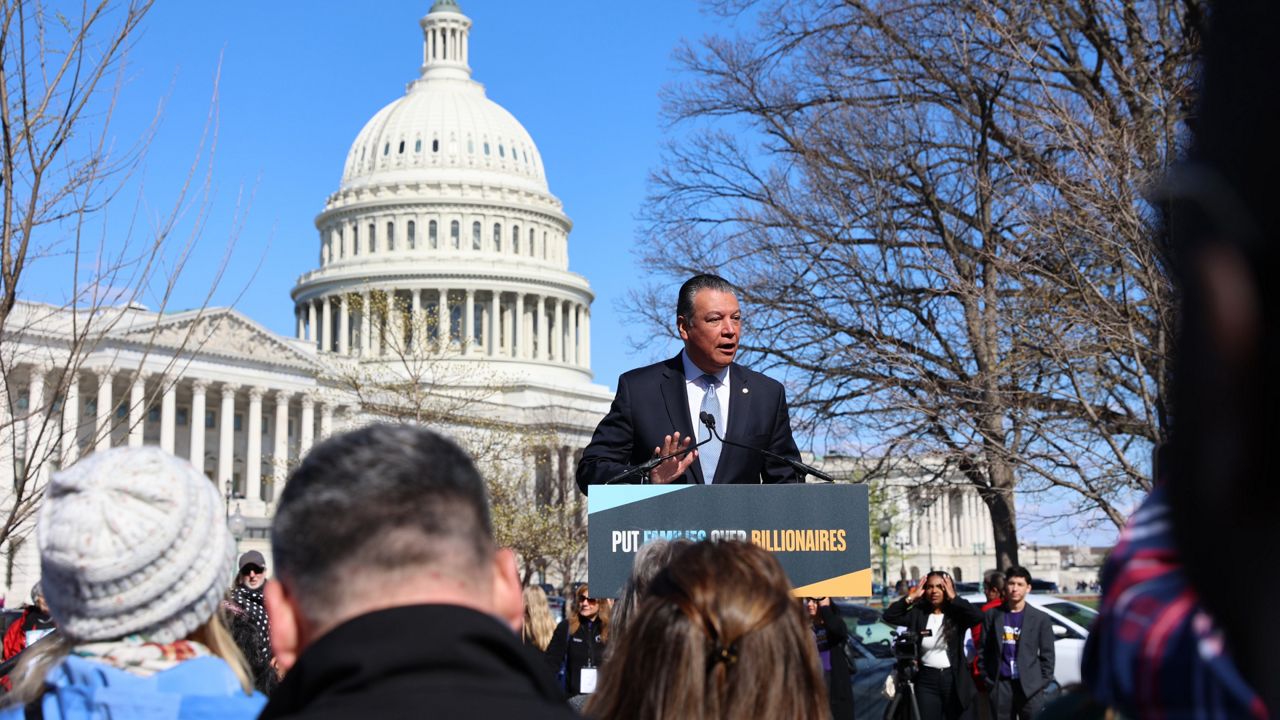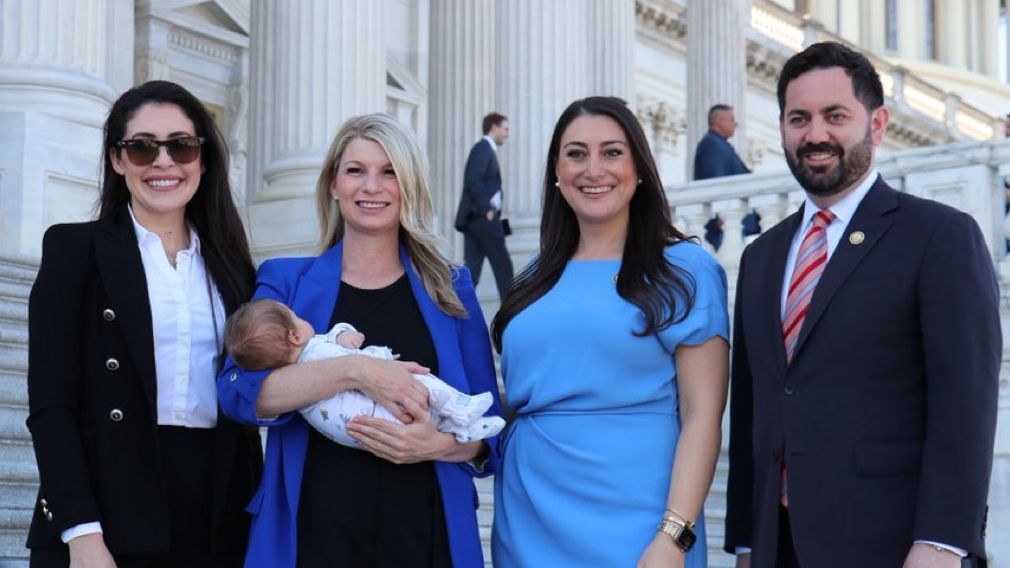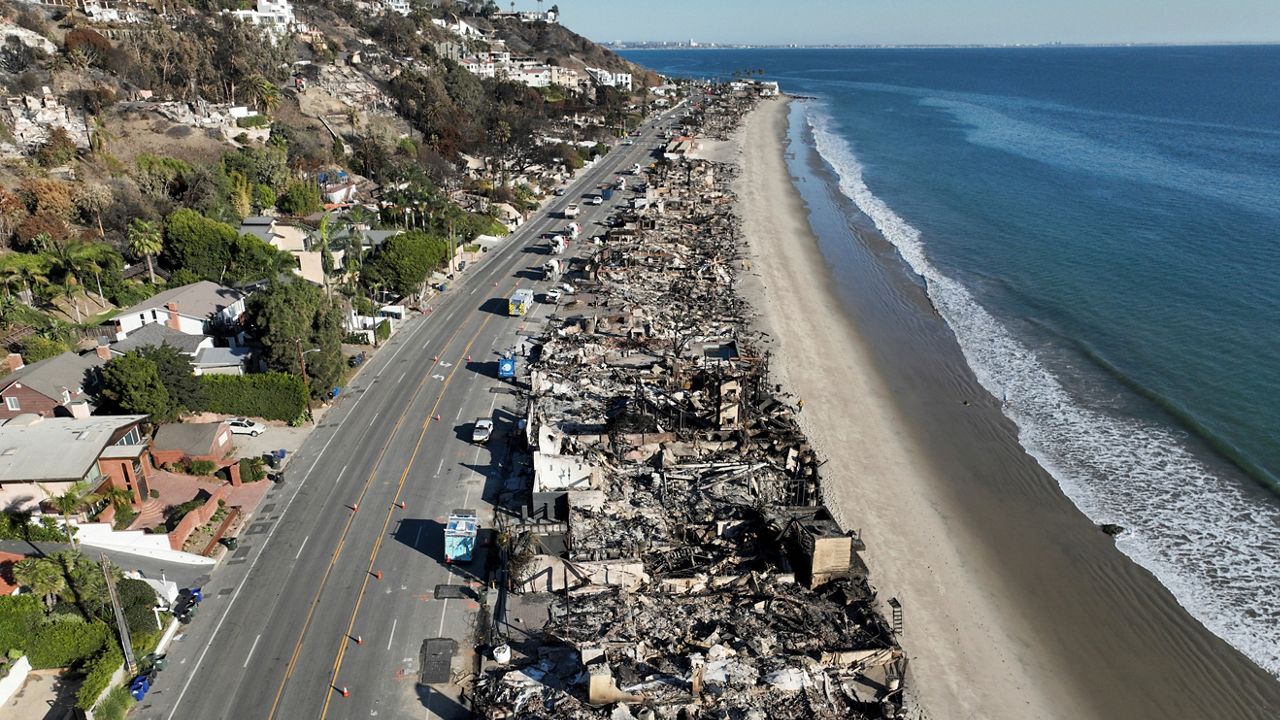This week during a cabinet meeting, Department of Homeland Security Secretary Kristi Noem had a suggestion.
“We're going to eliminate FEMA,” Noem said, referring to the Federal Emergency Management Agency, which falls under her purview at Homeland.
Her comments created an immediate ripple effect on Capitol Hill.
“I think it’s dangerous. It's the wrong idea at the wrong time,” said Rep. Raul Ruiz, D-Calif.
“This is an incredibly bad idea, it’s offensive” said Rep. Brad Sherman, D-Calif.
It’s not the first time the Trump administration has suggested getting rid of FEMA. In fact, just days into his second term, President Donald Trump himself downplayed the need for the agency after touring the wildfire damage in Los Angeles.
“You don’t need FEMA, you need a good state government. And when you have a problem in Los Angeles or when you have a problem even in the state of California, you have your own essentially FEMA. You fix it yourself,” Trump said in January.
Sherman, who represents the Palisades community that was rocked to its core by the fires, was sitting just a few chairs away from the president during that event. He was quick to push back on Trump’s comments.
“Mr. President, you can't have Rhode Island maintain a staff of thousands and thousands of people waiting to see if they have a disaster,” Sherman said before he was interrupted by Trump, who said FEMA is too slow to respond to crises.
It was a point Sherman doubled down on this week, calling it “an insane idea that every state should maintain the technical expertise of FEMA.”
“We have a country for a reason. We have to maintain one team that can deal with these issues, and then send them with some local hires to wherever the disaster is. This is an incredibly bad idea. And, I don't know why the Republicans keep repeating it,” he said.
Reps. Pete Aguilar, D-Calif., the chair of the House Democratic Caucus, echoed similar sentiments.
“California has amazing professionals who do this work in the disaster and recovery space. Smaller states do not. It is actually to the benefit of smaller states and more rural communities that we have a strong and robust FEMA,” Aguilar said during his weekly news conference in response to a question from Spectrum News.
Discussions of disbanding FEMA come as California waits to see how Congress will respond to Gov. Gavin Newsom’s $40 billion wildfire relief request — of which nearly $17 billion is slated for FEMA assistance specifically. It’s unclear how getting rid of the agency as Noem has suggested could impact recovery efforts, and a request to the White House on the matter went unanswered.
A source close to the negotiations around wildfire relief tells Spectrum News conversations around securing aid for Californians are still ongoing.
As the administration is discussing getting rid of the agency, there’s a bipartisan effort underway in the House to reform FEMA. Florida Reps. Byron Donalds and Jared Moskowitz, a Republican and a Democrat respectively, introduced the FEMA Independence Act on Tuesday, which would remove FEMA from under Homeland and Noem’s purview and make it an independent agency as it was before Sept. 11.
“My advice to the white House has been that FEMA should be a direct support agency to the president. And it's just — Homeland is just a bureaucratic mess. And when disaster strikes, people need quick responses,” Donalds said. “FEMA is a bureaucratic accounting agency. That's not the expectation that the American people have. And the expectations of the American people is what we should be delivering on. So FEMA needs to be reoriented into an action agency as opposed to an accounting bureaucratic one.”
Moskowitz, who served as Florida’s Emergency Management director before being elected to Congress, said getting FEMA out from under the Homeland umbrella would “shrink the grant writing part of the agency” and give it the ability to refocus on coordination and response to crises.
“Congress ultimately should act at reforming FEMA, saving it and reforming it. A lot of talk around here about eliminating agencies, but there are agencies that shouldn't be eliminated but could be reformed. And if they do it right, it could be bipartisan,” he said.







